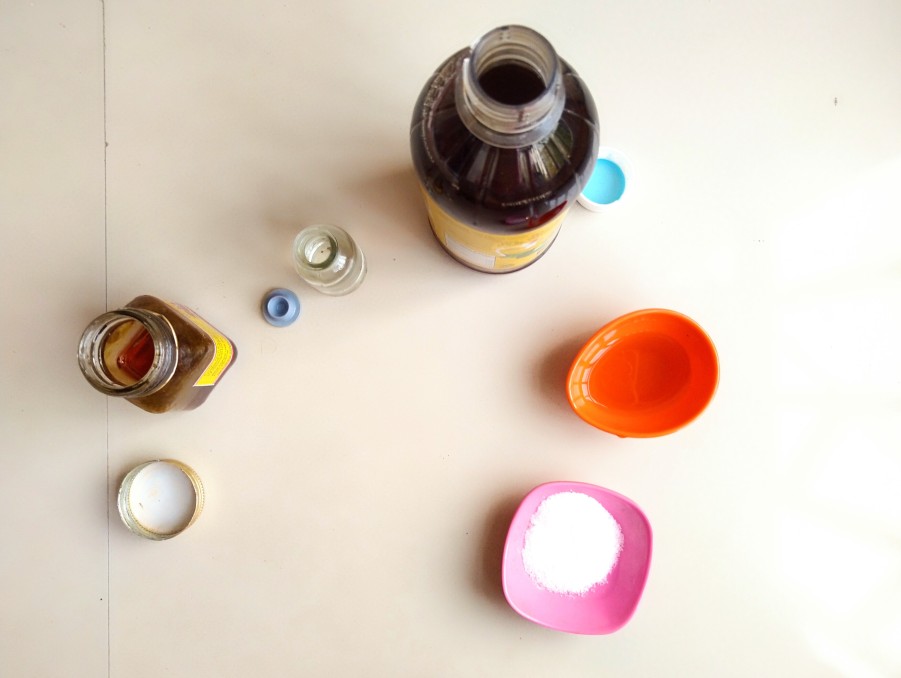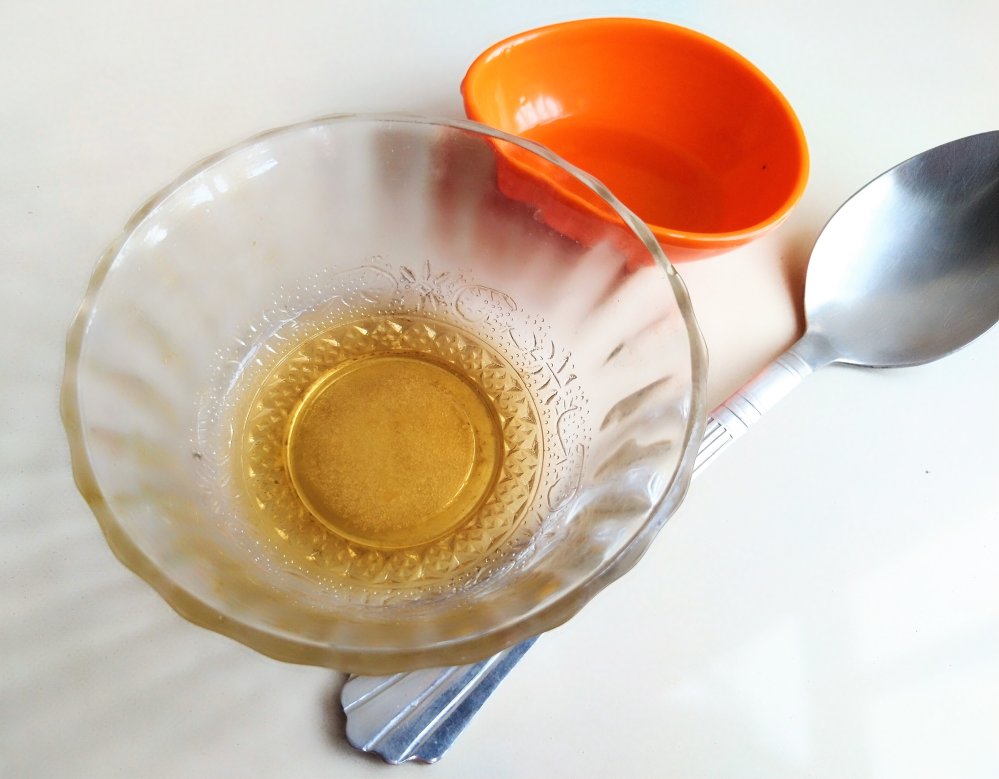I’m quite sure you know about ACV, aka Apple Cider Vinegar. Most of us are already using it for health. But are you aware of its skin health benefits?
This post is for those who struggle with acne or pigmentation and are not sure how to incorporate ACV into their skincare routine.
I’m sharing a DIY ACV face mask you can prepare anytime with readily available products.
So, without wasting much time, let’s get started.
Contents
Ingredients required
- Apple cider vinegar (ACV): 1 tbsp
- Honey: 1 tbsp
- Baking soda: 1/3rd tbsp
- Aloe Vera gel: 1 tbsp
- Glycerin: 5 drops (optional)

Benefits of the ingredients
- Apple cider vinegar (ACV): It helps reduce scars, blemishes and treat sunburns. Not only that, it works great on acne. ACV is also used as a facial toner and helps lighten dark spots and pigmentation. Many use it to provide a shine and smoothness to their hair.
- Honey: It is a great remedy for skin problems like acne, eczema, and ringworms. Besides curing a sore throat, it acts as a moisturizing agent for the skin. It has antibacterial properties that help to reduce acne formation and breakouts. It speeds up the healing process of the skin and reduces dark spots and scars.
- Baking soda: It exfoliates the skin and scrubs away the dry and dead cells. Honey helps lighten blemishes and dark spots. It helps to banish pimples and prevents the formation of blackheads and whiteheads.
- Aloe vera gel: Fights against bacterial, viral and fungal infections and reduce inflammation. It is a popular natural skin moisturizer that also prevents dryness. Being non-comedogenic, it fights against acne and breakouts. It also helps to reduce the dark spots, blemishes and scars caused by acne and pimples. It helps in reducing the signs of aging.
- Glycerin: It provides hydration to the skin and works as a skin softener. It helps to prevent skin conditions like eczema and psoriasis. Glycerin helps reduce the dry patches on the skin. It helps to protect the skin from the damages caused by harmful microorganisms.
What is an ACV face mask?
Apple Cider Vinegar helps reduce various skin conditions and improves the skin texture naturally. It is a perfect face mask for acne-prone skin. Those who often face pimples or breakouts are recommended to use it. ACV, along with all these ingredients, has been effective for oily, pigmented and acne-prone skin.
Why should you use it?
This is an organic face mask that helps prevent pimples and reduces scars and dark spots. ACV has been beneficial in various ways:
- Has anti-fungal, anti-bacterial properties that help to reduce various skin issues.
- Helps in reducing scars, acne, blemishes and dark spots formed by the pimples and breakouts.
- Keeps the skin soft and flawless.
- Helps in easing inflammation and prevent bacterial growth on the skin.
- Removes blackheads.
- Works as a natural toner to balance skin’s pH.
- Hydrates dull and dry skin.
- Helps to lighten the skin naturally.
Steps to prepare the ACV face mask
- Take a small bowl, add apple cider vinegar, organic honey and baking soda.
- Mix the ingredients well.
- Add Aloe Vera gel and vegetable glycerin to it.
- Finally, mix all the ingredients well to make a smooth paste. Your ACV face mask is ready to use.

When and how to apply the mask?
The procedure for the application of the ACV face mask is here:
- Wipe out all your makeup.
- Wash your face with a mild cleanser.
- Pat it dry and apply a thick layer of the mask on your damp skin ( thoroughly on your face and neck ).
- Let it sit for 8 to 10 minutes.
- Then wash it off carefully with normal water.
- Finally, apply moisturizer to your skin.
Do’s and don’ts
- Measure the ingredients before adding them.
- Check the ingredients properly.
- If you have any allergic reactions to any of the ingredients mentioned above, then skip it.
- Don’t add too much ACV to the recipe.
- If you have any burns or injuries, be careful with them.
- Don’t apply over burns and cuts. It may be infectious in the future.
- Be careful with your eyes and nose.
- If any allergic reactions occur, wash it off thoroughly, apply ice cubes, and then take immediate
- doctor’s advice.
- Don’t use more baking soda as it may cause irritation and skin inflammation.
- Do a patch test before using it on the skin.
I have some experiences and reviews from my dear ones who recently tried this ACV face mask recipe. I have recommended two of my friends to use this mask and shared the recipe. They have acne-prone skin and get dry during winters. They have been using this for the last three months and have shared their before and after pictures.
I was amazed by how much this recipe has brought changes to those who tried. I would suggest to my readers to try it once and let me know about it.
